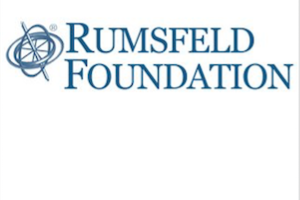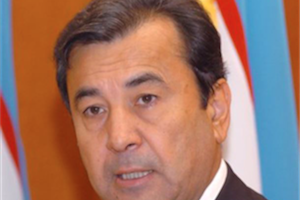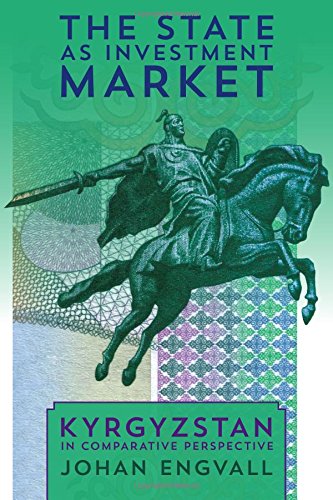Heart of Asia Business Partnerships, from the Black Sea to Mongolia

Heart of Asia Business Partnerships,
from the Black Sea to Mongolia
Tuesday, 1 Nov. 2016, from 5 to 7 p.m.
(reception with Georgian wine at 5 p.m.; program at 5:30)
In this CACI forum, eleven participants from the Fall 2016 Rumsfeld Fellowship program, representing eight countries, will discuss INNOVATIVE EMERGING regional business partnerships in Central Asia and the Caucasus.
A video recording of this forum can now be viewed on the SAIS Events YouTube channel.
Moderated by S. Frederick Starr, Chairman, Central Asia-Caucasus Institute
Rome Building Auditorium
SAIS - Johns Hopkins University
1619 Massachusetts Ave., NW
Washington, DC 20036
Afghanistan: What Does the Future Hold?

Afghanistan: What Does the Future Hold?
Thursday, 3 Nov. 2016, from 5 to 7 p.m.
(reception with Georgian wine at 5 p.m.; main program at 5:30)
This CACI forum presents three of its Afghan colleagues, all of them recipients of the Rumsfeld Fellowship. With one a senior official in President Ghani's office, the second the head of Afghanistan's largest TV network, and the third from the Afghan private sector with military background, they are well positioned to speak about their country's future, its security, its politics, and the views of its citizens.
Speakers:
Mr. Zafar Hashemi
Deputy Spokesman to the President of Afghanistan
Mr. Lotfullah Najafizada
Award-winning journalist and Director of TOLOnews (Afghanistan’s top 24/7 news and current affairs television channel)
Mr. Sami Sadat
CEO, Blue Sea Logistics Company
Military and Security Expert
Moderated by S. Frederick Starr, Chairman, Central Asia-Caucasus Institute
A video recording of this forum can now be viewed on the SAIS Events YouTube channel.
Rome Building Auditorium
SAIS - Johns Hopkins University
1619 Massachusetts Ave., NW
Washington, DC 20036
Update from Tashkent: A Conversation with Senator Sodiq Safoev

the Embassy of the Republic of Uzbekistan invite you:
Update from Tashkent: A Conversation
with Senator Sodiq Safoev, Сhairman of the Committee for Foreign Relations of the Senate of the Oliy Majlis of the Republic of Uzbekistan
Thursday, Oct. 20, 2016, from noon to 1:30 p.m.
Important developments are under way in Uzbekistan. With national elections impending on December 4, and fresh initiatives already taken in areas as diverse as policy reforms, business, and international relations, Uzbekistan has entered a vital new phase.
Senator Safoev served as Ambassador to Washington from 1996 to 2001, where he was warmly received, and subsequently was Minister of Foreign Affairs and Rector of the University of World Economy and Diplomacy in Tashkent. He was elected to the Senate in 2010. Additionally, he worked as the First Deputy Minister of Foreign Affairs; as Special Representative of the President of Uzbekistan in Afghanistan; as Ambassador of Uzbekistan to Germany; and as Chief Consultant and Head of the Department of International Economic Relations under the presidential administration.
Moderated by Svante Cornell, Director, Central Asia-Caucasus Institute
Lunch (Uzbek cuisine) will be served.
Washington, DC 20036
Registration is REQUIRED for this event:
The State as Investment Market: Kyrgyzstan in Comparative Perspective
Book, University of Pittsburgh Press, June 2016
Johan Engvall, The State as Investment Market: Kyrgyzstan in Comparative Perspective
Based on a detailed examination of Kyrgyzstan, Johan Engvall goes well beyond the case of this single country to elaborate a broad theory of economic corruption in developing post-Soviet states regionally—as a rational form of investment market for political elites. He reveals how would-be officials invest in offices to obtain access to income streams associated with those offices. Drawing on extensive fieldwork over an eight-year period, Engvall details how these systems work and the major implications this holds for political and economic development in the region. Often identified and criticized simply as obstacles to development by scholars, Engvall instead argues that these systems must be reinterpreted in the context of a standardized and entrenched method of organizing the state. He also shows how private actors have been unsuccessful in buying preferential treatment directly from the state. Instead, public officials have become the predominant conduit to influencing policy process and monitoring the sale of protection, property rights, and other privatized “public” goods.
“A superb study that fundamentally challenges our perception of the post-Soviet Central Asian state. Engvall’s thesis is the most novel and convincing account of post-Soviet Kyrgyz state formation of the past decade.”—Eric McGlinchey, George Mason University
Johan Engvall is a research fellow at the Swedish Institute of International Affairs (UI) and a nonresident research fellow of the Central Asia-Caucasus Institute and Silk Road Studies Program, a joint Transatlantic Research and Policy Center affiliated with Johns Hopkins School of Advanced International Studies, Washington, D.C. and the Stockholm-based Institute for Security and Development Policy (ISDP).
Fresh Insights on Andijan, 2005
CACI FORUM
Fresh Insights on Andijan, 2005
Wednesday, Oct. 12, 2016, from 5 to 7 p.m.
(reception at 5 p.m. with Georgian wine; main program at 5:30)
An armed uprising rallied by an Uzbek Islamic group, and the clash with Uzbekistan's security forces in Andijan on May 13, 2005, has long been a subject of contention. Now Jeffry W. Hartman has published a detailed account of what is known to have occurred, and John C.K. Daly has written a study on how the international press actually covered those events. Both authors will present their findings at this forum, and discussion will follow.
A video recording of this event is now available on the SAIS events YouTube channel.
Speakers:
John C.K. Daly, Non-Resident Senior Scholar, Central Asia-Caucasus Institute
Jeffry W. Hartman, Colonel, U.S. Army, and Chief, Army International Affairs
Moderated by S. Frederick Starr, Chairman, Central Asia-Caucasus Institute
SAIS - Johns Hopkins University
1717 Massachusetts Ave., NW
Washington, DC 20036



